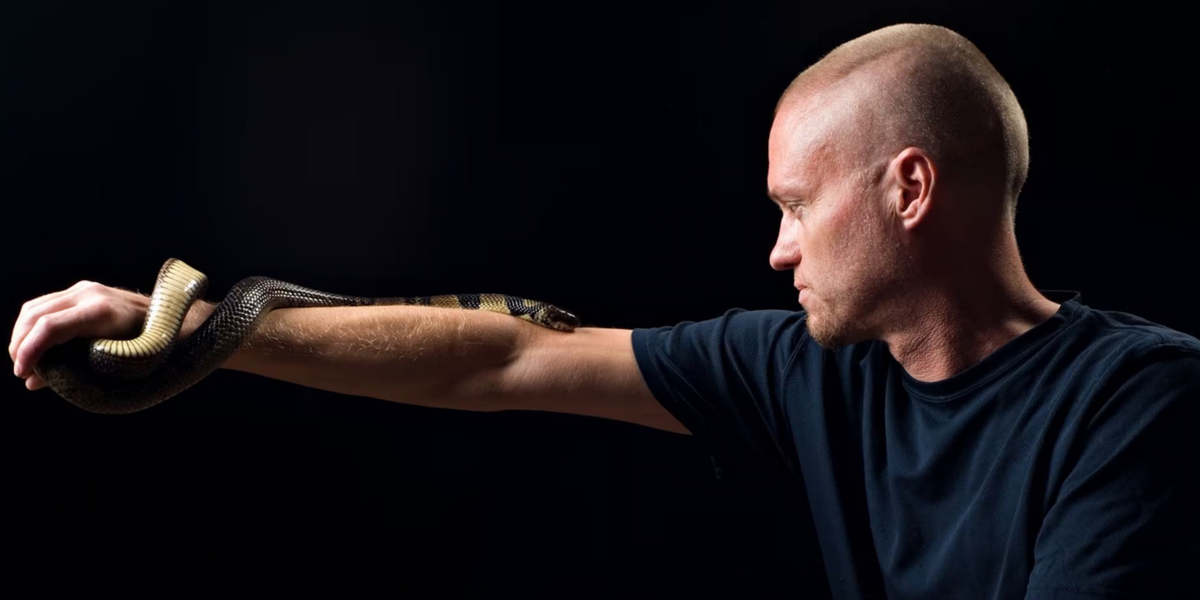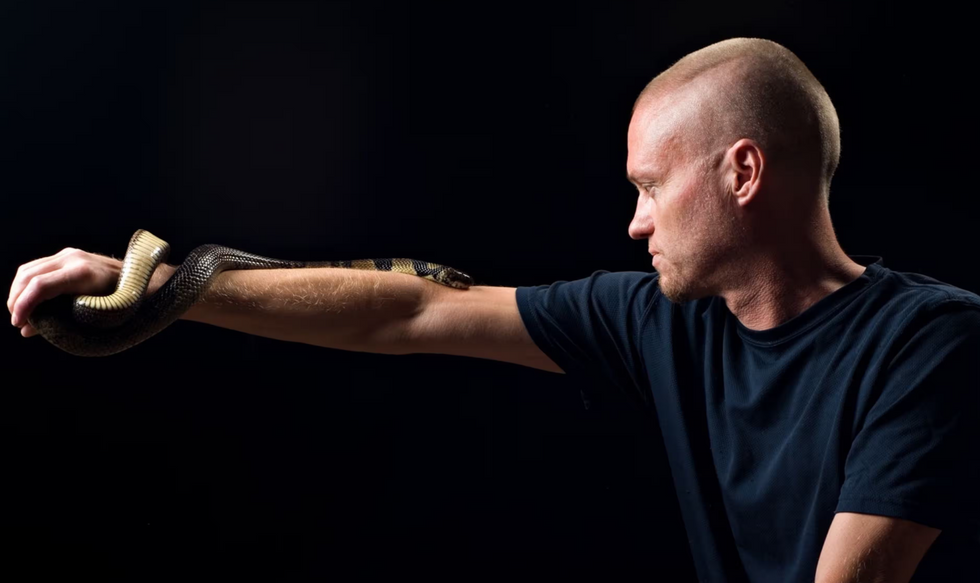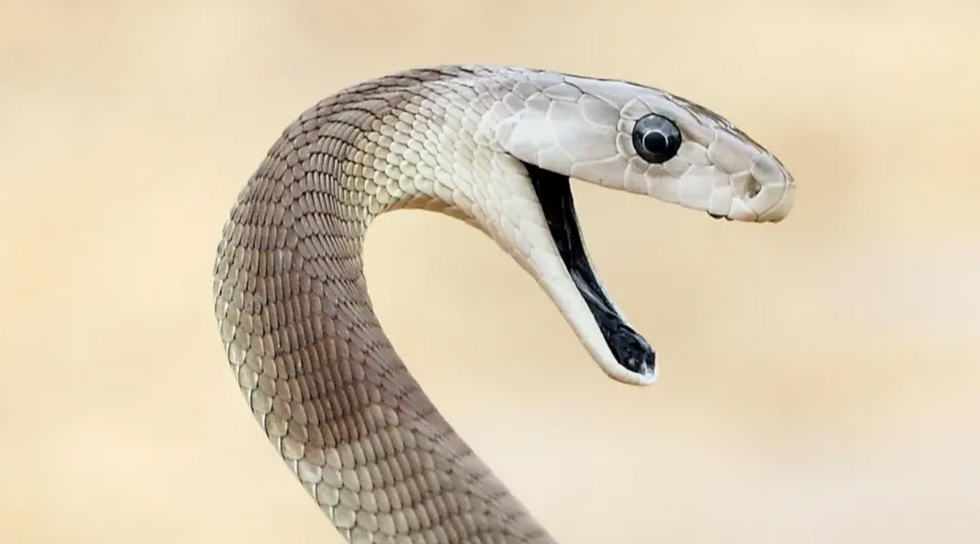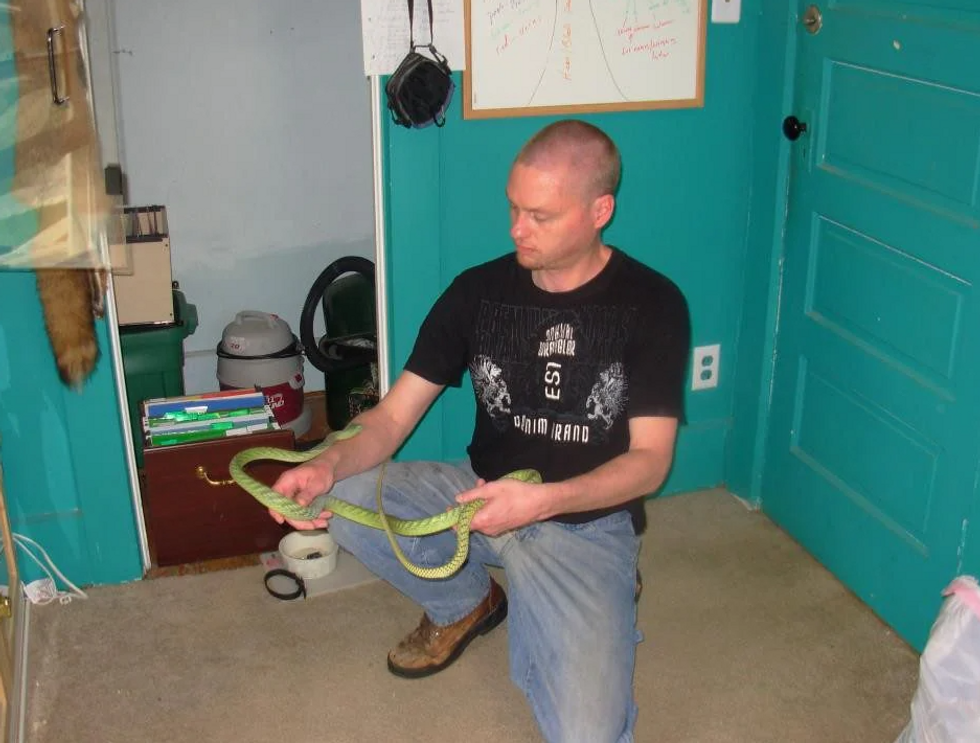



A man who has been bitten by snakes over 200 times could provide an “unparalleled” antivenom that could save countless lives.
Tim Friede, a former truck mechanic from Wisconsin, has been deliberating injecting himself with venom from some of the world’s deadliest snakes for 18 years.
Friede has received venom from multiple species of mambas, cobras, taipans and kraits, with one incident resulting in him spending four days in a coma.
Now, scientists have used antibodies from his blood to create the most broadly protective antivenom to date.

Tim Friede, a former truck mechanic from Wisconsin, has been deliberating injecting himself with venom from some of the world’s deadliest snakes for 18 years
Centivax
The antivenom could revolutionise the treatment of snake bites, which kill up to 140,000 people a year and leave three times as many needing amputations or facing permanent disability.
“For a period of nearly 18 years, [Friede] had undertaken hundreds of bites and self-immunisations with escalating doses from 16 species of very lethal snakes that would normally kill a horse,” said Jacob Glanville, the chief executive of the US biotech Centivax and author of the research.
“It blew my mind. I contacted him because I thought if anyone in the world has these properly neutralising antibodies, it’s him.”
His journey first began with the unusual hobby of extracting venom from scorpions and spiders.
He later started injecting himself with diluted snake venom, gradually increasing the dosage as his “simple curiosity” grew.

A black mamba is one of the world's deadliest snakes
Getty
Friede began documenting his exploits on YouTube, where he shared his experiences with his audience.
However, his plan went horrifically wrong when early on in his journey, an Egyptian cobra bite left him fighting for his life in 2001.
Friede told the BBC of the resulting coma: “I didn’t want to die. I didn’t want to lose a finger. I didn’t want to miss work.”
The self-taught herpetologist’s goal then became to develop immunity to snake bites so that scientists could create a universal antivenom.
“It just became a lifestyle and I just kept pushing and pushing and pushing as hard as I could push – for the people who are 8,000 miles away from me who die from snakebite,” he said.
Friede’s exploits caught the attention of researchers including Glanville, who are now analysing his blood in hopes to create a universal antivenom.
Glanville said: “Immediately I was like 'if anybody in the world has developed these broadly neutralising antibodies, it's going to be him' and so I reached out," he said.
“The first call, I was like 'this might be awkward, but I'd love to get my hands on some of your blood'.”

Friede began documenting his exploits on YouTube, where he shared his experiences with his audience
Friede replied: “I’ve been waiting for this call for a long time.”
When the body is exposed to toxins in snake venom, it develops antibodies that can neutralise the poison - though only if it’s a small amount.
The cocktail combines two protective antibodies from Friede’s blood and a small molecule venom inhibitor which blocks its harmful effects..
To design it, the team selected 19 of the World Health Organization’s category 1 and 2 deadliest species, including coral snakes, mambas, cobras, taipans and kraits.
The concoction allowed mice to survived deadly injections from 13 out of 19 deadly snake species.
“By the time we reached three components, we had a dramatically unparalleled breadth of full protection for 13 of the 19 species and then partial protection for the remaining that we looked at,” Glanville said.
“Had I, as an immunologist, spent a bunch of time thinking about it, I don’t think I would have come up with a better solution.”
The team is now trying to refine the antibodies further and see if adding a fourth element could lead to total protection against elapid snake venom.
